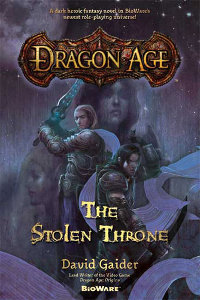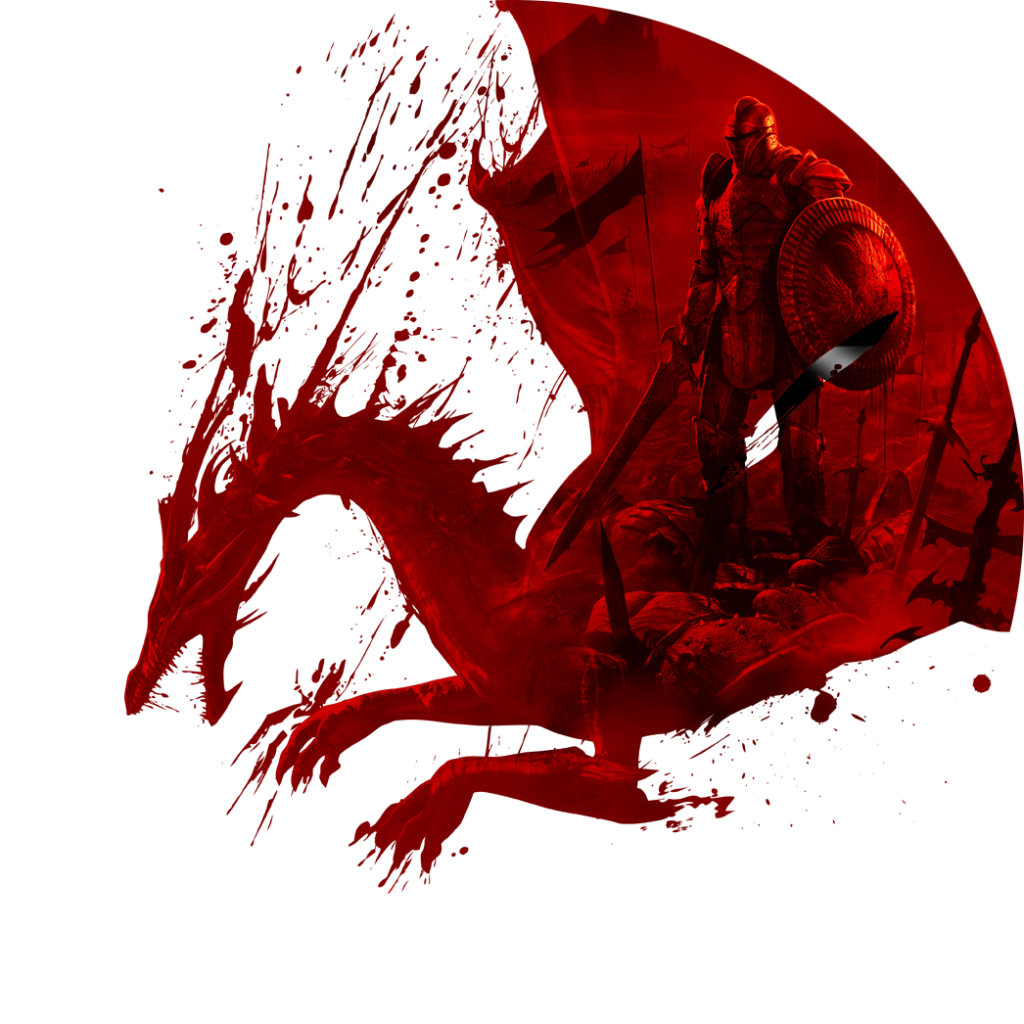Happy New Year!
What do you mean it’s already halfway over?
I kept getting holds at my local library, so I just finished my first Dragon Age book over the holiday weekend. I don’t have anything on the horizon, so the next one should move pretty quickly and then hopefully you’ll be getting regular Dragon Age Origins videos out of me. I’m really looking forward to playing it with this book in my head. Loghain is going to read much differently. He’s still an asshole, but he’s an asshole with layers.
First of all, I cannot tell you how much I loved living in this world in a written form. Seeing characters that vaguely get referenced become fully fleshed out made my brain squee. Obligatory SPOILER WARNING that after this point there will be in depth discussion of both the book The Stolen Throne and the video game Dragon Age: Origins. You have been warned.

You know how Loghain is supposed to be a great war hero but all we know him as is the bad guy in the video game? This book takes place during that war. We meet Prince Maric when his mother, the Queen is betrayed and killed, thus making him the next in line to the throne and in charge of the rebel army along with his father-in-law, the Arl Rendorn. Loghain meets him while on the run from the traitors who have killed his mother and want him dead too. At first it’s just “I’m going to get you somewhere safe” and then it snowballs into joining the rebel army and ultimately becoming a commander of that army and one of his best friends. Except, oops, along the way he develops feelings for Rowan, the woman Maric is supposed to marry. Awk-ward! It’s fascinating seeing how Loghain’s relationship with this family develops over time, knowing that ultimately he is going to be an advisor to Maric’s son, Cailan, but that’s going to be complicated as well. More on that at the end though.
There’s one particular section in an early chapter I loved, where Loghain and Maric are traveling through the Wilds and meet Flemeth. She, of course, has some juicy dialogue that I made note of because I thought it would be prescient for future chapters (or even possibly the next book, since I know Maric is in that one as well). Hell, you could even argue she’s referencing Loghain’s actions in DA:O with this beauty, “Keep him close and he will betray you. Each time worse than the last.” I’d say leaving Maric’s son to die in battle could be considered a betrayal? Although there’s also this exchange towards the end of the book, after Loghain has diverted from the army to save Maric, where Maric then makes Loghain promise, “Next time I don’t come to your rescue”. I spent most of this book looking at their relationship and seeing what happens in DA:O with Cailan, and part of that I will admit was me mixing up who was king at the time, but I also wonder if Loghain remembers this moment and several others that add up to “sacrifices need to be made” and that’s his justification for doing what he does during that battle where Cailan dies. It doesn’t necessarily make me agree with him, but it does get me to a place where I see where he’s coming from in a way I didn’t expect to be able to.
The epilogue shows us that Loghain has been rewarded with a title of nobility – Teyrn of Gwaren. He marries and has a daughter, Anora, who we see is married to Maric and Rowan’s son Cailan in DA:O. What’s interesting is that in the epilogue it’s mentioned that after Loghain gets his title he stays in Gwaren and never visits the palace until Rowan’s death. Cleary he and Maric don’t speak again but patch things up and sometime after promise their kids will get married…? I’m curious to see what other things get filled in with the next book before continuing on with the game, but this one really does change how I view events especially early on when Cailan is still alive and you interact with him and Loghain more. I’m very excited to play with this new knowledge in my noggin.
One last interesting lore detail to wrap things up. In the last chapter, right before the big battle, a dragon flies over Ferelden. This is significant because, at the time, it was believed the Navarrans had hunted them more than a century ago into extinction. The Chantry takes it as an omen, and the Divine in Val Royeaux declares the next age as the “Dragon Age”. And thus our series was born.

